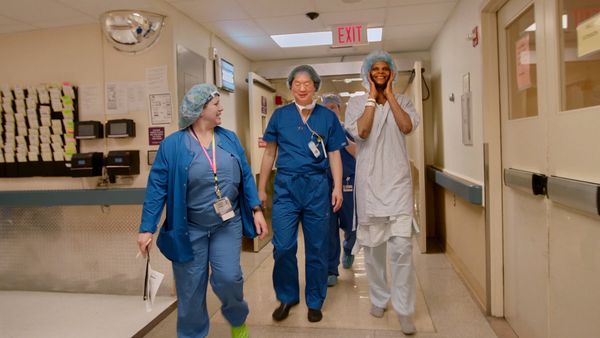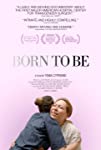Eye For Film >> Movies >> Born To Be (2019) Film Review
Born To Be
Reviewed by: Jennie Kermode

Over the past few years, as attitudes to trans people have changed around the world, more and more people have felt able to open up and, where appropriate, seek medical support. There's a downside to this for those seeking treatment, however: waiting lists are getting longer and longer. In the UK, it can take three years just to get a first appointment with a consultant. In 2016, an amendment to Section 1557 of the Affordable Care Act prevented health insurers from specifically excluding these treatments and demand shot up, but there were still far too few doctors available with the skills and inclination to help. This film follows Dr Jess Ting, a plastic surgeon who stepped up to fill the gap, looking not only at the physical and social changes he has made possible for his patients but also at the way the experience has changed him.
Why are there so few people working in this area? We get something of an answer when Ting reflects on the way colleagues' behaviour towards him changed after he decided to take it on. With the bafflement of someone unused to prejudice, he describes the way they started avoiding him, the suggestion that he must be trans or that he was probably gay. Ironically, this seems to have helped him relate more effectively to his patients' experiences, though it's clear that he's still deeply disturbed when talking about the years of abuse and exclusion that some of them have faced.
Ting is a keen double bass player who studied at Juilliard before moving into medicine. His appreciation of the finer things in life gives him a natural resilience, and the fine control he has in his hands is equally evident in the work he does. The patients he treats are often psychologically fragile (suicide attempts in untreated trans people are 18 times more common than in the wider US population) and several of those we meet have sought help on the black market, where prices are much lower but there are massive risks involved. Helping these people involves undoing the damage this has caused. One woman's face is so swollen that it's barely possible to make out the lines of her bones, but somehow Ting is able to discern what lies underneath and bring out a face which not only looks beautiful but clearly speaks to who she is. To see her smile with this face after decades of disfigurement is quite a moment.
None of the surgery carried out here is easy. Going through a masculine puberty thickens the facial bones and the only option for trans women who want to look more feminine - enough, say, to keep the from getting harassed in the street - is to have them broken and shaved down. Immediate post surgery shots illustrate to anyone familiar with these procedures that Ting has a remarkable level of skill. He's also an innovator, developing a new procedure for use in vaginoplasty. His mixture of calm focus and childlike enthusiasm inspires confidence in patients who volunteer to let him try things out.
Overall, the film may be a little too rosy. Whilst rates of patient regret for such procedures are very low, complications are fairly common, and there's little focus on this or on how Ting handles them. Documentary makers are limited, however, by what participants are willing to discuss. This film does address the important point that surgery cannot solve everything. Ting is open about this with his patients and says that he only wants to do his bit to make life better for them. What began as a job for him has clearly transformed into a vocation as he has discovered what that's worth.
There are now quite a number of films out there following individual transition stories. Taking a different angle, Born To Be is an important contribution to public understanding. Like recent films about trans people and their families, it illustrates that trans issues don't just affect individuals but have a wider reaching impact on society. It's a fascinating introduction to the subject for curious newcomers and provides some valuable insight for those who are considering seeking treatment themselves.
Reviewed on: 06 Jan 2021















